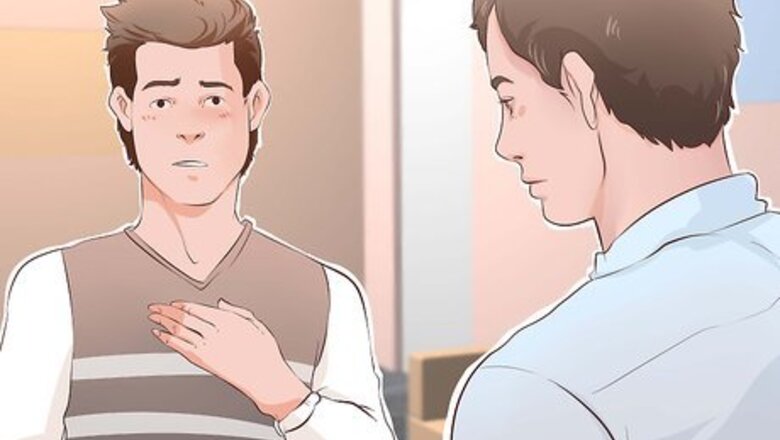
views
X
Trustworthy Source
PubMed Central
Journal archive from the U.S. National Institutes of Health
Go to source
Responding When You're Embarrassed
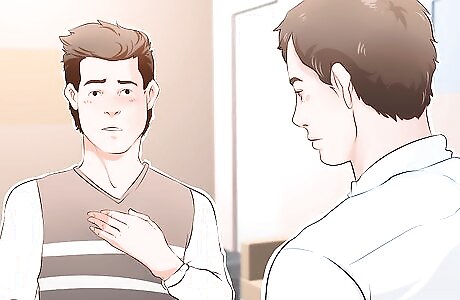
Apologize when appropriate. If you're embarrassed by something you did to someone else, say you're sorry and be genuine about it. That said, don't draw it out. Let her know you're truly sorry about what you did but don't perseverate on it. For example, if you called her by the wrong name you might say something like: "I'm really sorry about that, I've been really worried about Sarah lately; I guess she's just on my mind a lot right now."

Laugh it off. Minimize how embarrassing the moment is by laughing at yourself. Embarrassing moments can be funny when they are light-hearted. If you let yourself laugh at the situation, it loses its power over you. To laugh it off, try creating a joke out of the situation. For example, if you spilled mustard all over your shirt and you're feeling embarrassed about it you might say "now all I need is a giant hot dog."
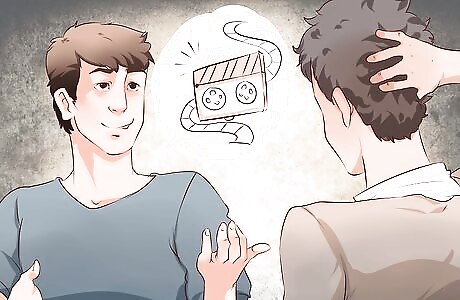
Quickly move past it. People have short attention spans. There's no need to draw the moment out for a long time. Change the subject in a fluid way to focus attention on something different. Avoid apologizing excessively if you did something embarrassing that requires an apology. Changing subjects without making it awkward can be tricky: the best way to do so will depend highly on the specific circumstances you find yourself in. Here is an example you can keep in mind and adapt to the specific circumstances you find yourself in. Imagine you become embarrassed about something while planning a movie night out. To change subjects, you might ask a question, such as, "I thought you had seen that movie already? What did you think about it? Is it worth seeing again?" This will draw attention away from the embarrassing thing you did toward something more germane.
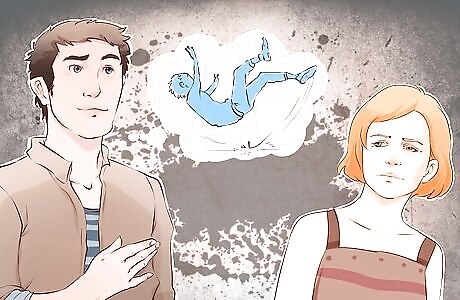
Minimize the incident. Remind others that people do embarrassing things all the time and that it isn't really a big deal. For example, say you tripped and fell in front of others. You might remind people this happens from time to time to lots of people, while keeping things light, by saying: "and another one bites the dust." If someone is rude to you while you're joking around, then ignore them.

Put embarrassment in others' court. If you've done something embarrassing, one way to deal with it is by asking others about things they have done in the past that they were embarrassed about. You may become closer with the person you are talking to by having a good laugh about past embarrassments. If you're using this tactic in the moments after the embarrassing event, you might say something like: "well, now that embarrassment is on your mind, have you done anything embarrassing lately?"
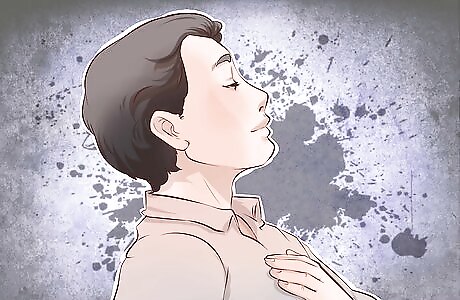
Breathe. Your heart may be racing, you may feel hot, you may be upset. Doing something embarrassing can lead to all of these negative feelings. Help to fight them off, and your embarrassment, by taking some deep breaths. Inhale for 5 seconds through your nose, then exhale for 5 seconds through your mouth.
Addressing Your Thoughts and Feelings

Distance yourself from your feelings. If you are having trouble dealing with an embarrassing moment, try creating some distance between yourself and your feelings. This can especially help when you are feeling overwhelmed by your feelings and are having trouble thinking straight because of them. Try to remind yourself that everyone gets upset from time to time. Making mistakes is part of how we learn.

Distract yourself. Give yourself some time to forget about the embarrassing thing you did. There are several ways you might distract yourself. You could: Watch a movie. Read a book Play video games Go out with friends Volunteer for a charity

Direct your attention to the present. Embarrassment is a thing of the past. It happened before now. The moment is gone. Although this is much easier said than done in the midst of an embarrassing moment, try to focus your attention on the present moment or future when dealing with embarrassment - you may find yourself less bothered by something that has already occurred.
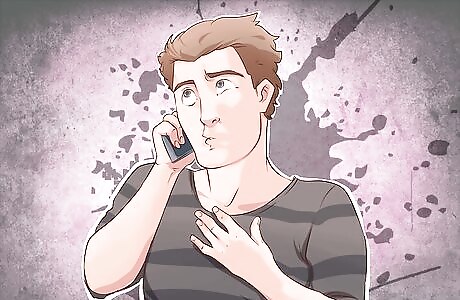
Remove yourself from the situation. If you're really embarrassed, see if you can appropriately get yourself out of there. Say you need to use the bathroom or take an important call. This can give you a time to collect yourself after an embarrassing incident.
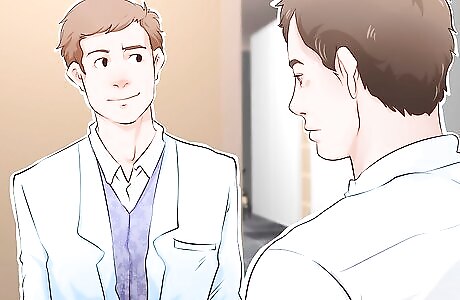
Talk to a therapist. If you think you are someone who gets easily embarrassed or socially anxious, or if you feel like you get embarrassed more than you would like to, it may be worth talking to a therapist about. She could help you change the way you think or react to embarrassing situations. There may be medications that are offered to you that could help to make you less sensitive to social anxiety, too. To find a therapist, you can: Google the terms "therapist + your city name or zip code." Use this link to find a therapist near you: https://locator.apa.org/
Navigating Others' Embarrassment
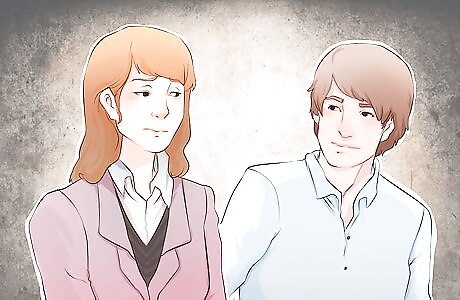
Be empathetic. Try to keep in mind that we all get embarrassed sometimes. It's not fun to be the one who is embarrassed, so don't act in ways that make her embarrassment worse than it already is. To be empathetic, take her perspective. Think about how you would feel if you were in that situation. Imagine what she might be going through in the moment. You can also remind her about a time the same thing or a similar thing happened to you or someone you know, to normalize the situation. For example, if she has screwed up the final play in an important basketball game and is embarrassed by it, you might tell her about a time the same thing happened to you. If that exact scenario hasn't happened to you before, tell her about something similar that you did. Maybe you went to the wrong gym and missed your sports game entirely. Tell her how it made you feel. This will draw attention away from her while reminding her that embarrassing moments happen to all of us.

Change subjects. If it is clear that she saw that you witnessed her embarrassing moment, acknowledge it but then quickly change subjects. Make it seem pressing and like something you have been wanting to ask her but forgot. This will make it seem like the conversation is happening naturally rather than being a ploy to make her feel less embarrassed. You want to get her mind off the embarrassing moment completely, you don't want her wondering whether your changing the subject was to avoid an awkward situation, which may make her even more embarrassed. When you change subjects, put some excitement into your voice. Remember that you want her to think that you finally remembered to ask her something. For example, you might ask whether she heard about something major that happened on the news - if it relates to something personal about her then even better.
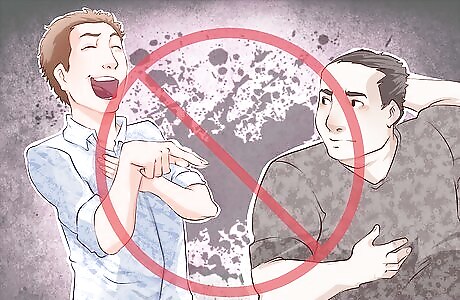
Don't make fun of the person. She already feels embarrassed, don't add to it by magnifying the situation with jokes about it. Although humor can be a good way to defuse embarrassment, it is best used when you are the one who did something embarrassing. If you make fun of someone else who is embarrassed, you will probably look like a jerk.
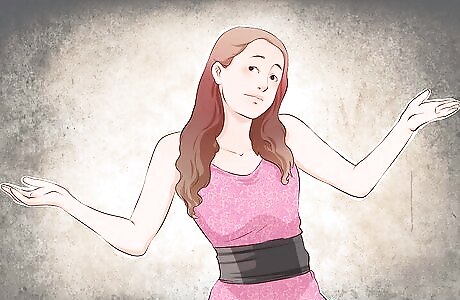
Pretend you don't know what happened. Using this tactic will depend on how believable it is. If you both locked eyes during her embarrassing moment, using this tactic is largely out of the question. However, if her attention was not directly at you when she did something embarrassing, you can pretend yours was, too. If she looks embarrassed you could apologize and say you had to check your phone but you're ready to get back to the conversation now. If she looks really embarrassed, your tale will be more believable if you acknowledge she looks flustered. Let her know you notice something about her. Ask her if everything is ok or if anything happened. This is what you would probably do if you really didn't see what happened but noticed she looked flustered afterwards, after all.




















Comments
0 comment